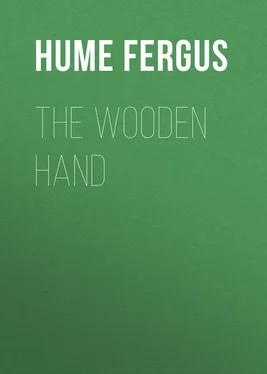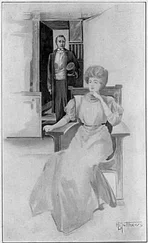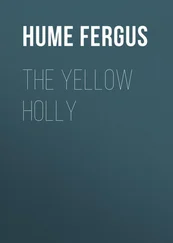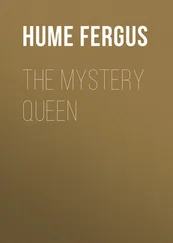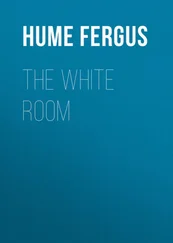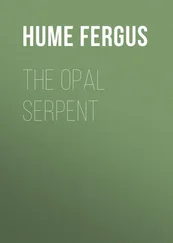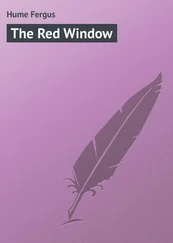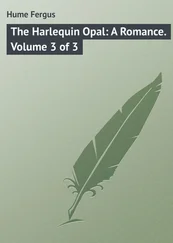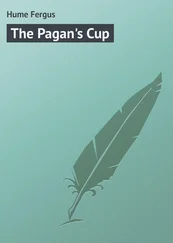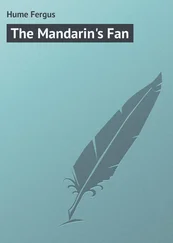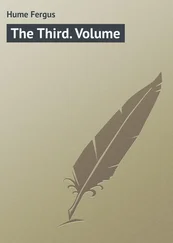Fergus Hume - The Wooden Hand
Здесь есть возможность читать онлайн «Fergus Hume - The Wooden Hand» — ознакомительный отрывок электронной книги совершенно бесплатно, а после прочтения отрывка купить полную версию. В некоторых случаях можно слушать аудио, скачать через торрент в формате fb2 и присутствует краткое содержание. Жанр: Классический детектив, foreign_detective, foreign_prose, foreign_language, на английском языке. Описание произведения, (предисловие) а так же отзывы посетителей доступны на портале библиотеки ЛибКат.
- Название:The Wooden Hand
- Автор:
- Жанр:
- Год:неизвестен
- ISBN:нет данных
- Рейтинг книги:4 / 5. Голосов: 1
-
Избранное:Добавить в избранное
- Отзывы:
-
Ваша оценка:
- 80
- 1
- 2
- 3
- 4
- 5
The Wooden Hand: краткое содержание, описание и аннотация
Предлагаем к чтению аннотацию, описание, краткое содержание или предисловие (зависит от того, что написал сам автор книги «The Wooden Hand»). Если вы не нашли необходимую информацию о книге — напишите в комментариях, мы постараемся отыскать её.
The Wooden Hand — читать онлайн ознакомительный отрывок
Ниже представлен текст книги, разбитый по страницам. Система сохранения места последней прочитанной страницы, позволяет с удобством читать онлайн бесплатно книгу «The Wooden Hand», без необходимости каждый раз заново искать на чём Вы остановились. Поставьте закладку, и сможете в любой момент перейти на страницу, на которой закончили чтение.
Интервал:
Закладка:
On the morning after Mr. Strode's expected arrival, the three people who dwelt in "The Arabian Nights' were seated in the Jacobean dining-room. Mr. Hill, in his invariable brown velvet coat with a rose in his buttonhole and a shining morning face, was devouring pâté-de-foie-gras sandwiches, and drinking claret. At times he took a regular English egg-and-bacon coffee and marmalade breakfast, but he varied his meals as much as he did his amusements. One morning, bread and milk; the next he would imitate Daniel and his friends to the extent of living on pulse and water; then a Continental roll and coffee would appeal to him; and finally, as on the present occasion, he would eat viands more suited to a luncheon than to a breakfast. However, on this especial morning he announced that he was in a musical mood, and intended to compose during the day.
"Therefore," said Mr. Hill, sipping his claret and trifling with his sandwiches, "the stomach must not be laden with food. This," he touched the sandwiches, "is nourishment to sustain life, during the struggle with melody, and the wine is of a delicate thin nature which maketh the heart glad without leading to the vice of intoxication. Burgundy, I grant you, is too heavy. Champagne might do much to raise the airy fancy, but I believe in claret, which makes blood; and the brain during the agonies of composition needs a placid flow of blood."
Mrs. Hill smiled wearily at this speech and went on eating. She and Allen were engaged in disposing of a regular English meal, but neither seemed to enjoy the food. Mrs. Hill, silent and unemotional, ate like one who needs food to live, and not as though she cared for the victuals. Allen looked pale and haggard. His face was white, and there were dark circles under his eyes as though he had not slept.
"Late hours," said his father, staring at him shrewdly; "did I not hear you come in at two o'clock, Allen?"
"Yes, sir;" Allen always addressed his parent in this stiff fashion. "I was unavoidably late."
Mrs. Hill cast an anxious look at his face, and her husband finished his claret before making any reply. Then he spoke, folding up his napkin as he did so. "When I gave you a latchkey," said Mr. Hill in his deep, rich voice, "I did not expect it to be used after midnight. Even the gayest of young men should be in bed before that unholy hour."
"I wasn't very gay," said Allen listlessly; "the fact is, father, I sprained my ankle last night four miles away."
"In what direction."
"The Westhaven direction. I was going to the Red Deeps, and while going I twisted my ankle. I lay on the moor-I was half way across when I fell-for a long time waiting for help. As none came, I managed to crawl home, and so reached here at two. I came on all fours."
"Humph," said Hill, "it's lucky Wasp didn't see you. With his ideas of duty he would have run you in for being drunk."
"I think I could have convinced Wasp to the contrary," said Allen drily; "my mother bathed my ankle, and it is easier this morning."
"But you should not have come down to breakfast," said Mrs. Hill.
"It would have put my father out, had I not come, mother."
"Quite so," said Mr. Hill; "I am glad to hear that you try to behave as a son. Besides, self-denial makes a man," added Mr. Hill, who never denied himself anything. "Strange, Allen, I did not notice that you limped-and I am an observant man."
"I was seated here before you came down," his son reminded him.
"True," said Mr. Hill, rising; "it is one of my late mornings. I was dreaming of an opera. I intend, Allen, to compose an opera. Saccharissa," thus he addressed Mrs. Hill, who was called plain Sarah, "do you hear? I intend to immortalise myself."
"I hear," said Saccharissa, quite unmoved. She had heard before, of these schemes to immortalise Mr. Hill.
"I shall call my opera 'Gwendoline,'" said Mr. Hill, passing his hand through his hair; "it will be a Welsh opera. I don't think any one has ever composed a Welsh opera, Allen."
"I can't call one to mind, sir," said Allen, his eyes on his plate.
"The opening chorus," began Mr. Hill, full of his theme, "will be-"
"One moment, sir," interrupted Allen, who was not in the mood for this trifling, "I want to ask you a question."
"No! no! no! You will disturb the current of my thoughts. Would you have the world lose a masterpiece, Allen?"
"It is a very simple question, sir. Will you see Mr. Strode to-day?"
Hill, who was looking out of the window and humming a theme for his opening chorus, turned sharply. "Certainly not. I am occupied."
"Mr. Strode is your oldest and best friend," urged Allen.
"He has proved that by taking money from me," said Hill, with a deep laugh. "Why should I see him?"
"I want you to put in a good word for me and Eva. Of course," Allen raised his eyes abruptly and looked directly at his father, "you expected to see him this morning?"
"No, I didn't," snapped the composer. "Strode and I were friends at school and college, certainly, but we met rarely in after life. The last time I saw him was when he brought his wife down here."
"Poor Lady Jane," sighed Mrs. Hill, who was seated with folded hands.
"You may well say that, Saccharissa. She was wedded to a clown-"
"I thought Mr. Strode was a clever and cultured man," said Allen drily.
"He should have been," said Mr. Hill, waving his hand and then sticking it into the breast of his shirt. "I did my best to form him. But flowers will not grow in clay, and Strode was made of stodgy clay. A poor creature, and very quarrelsome."
"That doesn't sound like stodgy clay, sir."
"He varied, Allen, he varied. At times the immortal fire he buried in his unfruitful soil would leap out at my behest; but for the most part Strode was an uncultured yokel. The lambent flame of my fancy, my ethereal fancy, played on the mass harmlessly, or with small result. I could not submit to be bound even by friendship to such a clod, so I got rid of Strode. And how did I do it? I lent him two thousand pounds, and not being able to repay it, shame kept him away. Cheap at the price-cheap at the price. Allen, how does this theme strike you for an opening chorus of Druids-modern Druids, of course? The scene is at Anglesea-"
"Wait, father. You hinted the other morning that Mr. Strode would never come back to Wargrove."
"Did I?" said Mr. Hill in an airy manner; "I forget."
"What grounds had you to say that?"
"Grounds-oh, my dear Allen, are you so commonplace as to demand grounds. I forget my train of thought just then-the fancy has vanished: but I am sure that my grounds were such as you would not understand. Why do you ask?"
"I may as well be frank," began Allen, when his father stopped him.
"No. It is so obvious to be frank. And to-day I am in an enigmatic mood-music is an enigma, and therefore I wish to be mysterious."
"I may as well be frank," repeated Allen doggedly, and doggedness was the only way to meet such a trifler as Mr. Hill. "I saw Eva last night, and she related a dream she had."
"Ah!" Mr. Hill spun round vivaciously-"now you talk sense. I love the psychic. A dream! Can Eva dream? – such a matter-of-fact girl."
"Indeed she's no such thing, sir," said the indignant lover.
"Pardon me. You are not a reader of character as I am. Eva Strode at present possesses youth, to cover a commonplace soul. When she gets old and the soul works through the mask of the face, she will be a common-looking woman like your mother."
"Oh!" said Allen, at this double insult. But Mrs. Hill laid her hand on his arm, and the touch quietened him. It was useless to be angry with so irresponsible a creature as Mr. Hill. "I must tell you the dream," said Allen with an effort, "and then you can judge if Eva is what you say."
"I wait for the dream," replied Mr. Hill, waving his arm airily; "but it will not alter my opinion. She is commonplace, that is why I agreed to your engagement. You are commonplace also-you take after your mother."
Читать дальшеИнтервал:
Закладка:
Похожие книги на «The Wooden Hand»
Представляем Вашему вниманию похожие книги на «The Wooden Hand» списком для выбора. Мы отобрали схожую по названию и смыслу литературу в надежде предоставить читателям больше вариантов отыскать новые, интересные, ещё непрочитанные произведения.
Обсуждение, отзывы о книге «The Wooden Hand» и просто собственные мнения читателей. Оставьте ваши комментарии, напишите, что Вы думаете о произведении, его смысле или главных героях. Укажите что конкретно понравилось, а что нет, и почему Вы так считаете.
